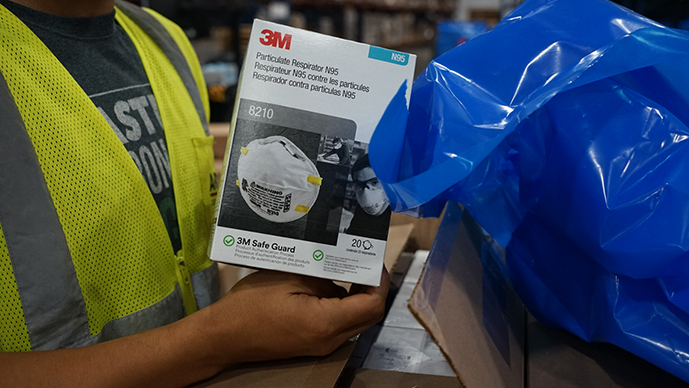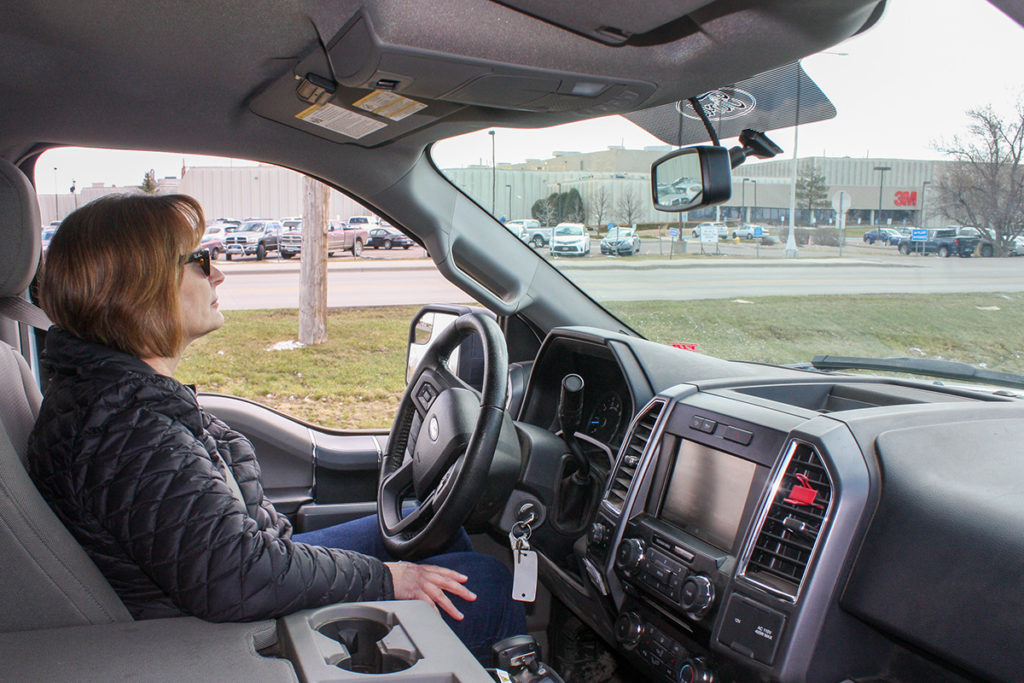
As the nation and the world work to flatten the curve against the COVID-19 pandemic, electric cooperatives are playing critical roles in meeting the need for crucial personal protective equipment for first responders.
A 3M plant, built to turn out respirator masks used by health care workers, emergency medical responders, construction workers and others, has ramped up production to help ease widespread shortages. The 46-year-old plant in Aberdeen, South Dakota, is powered by Northern Electric Cooperative.
“The 3M plant is playing a critical role in the response to this global pandemic,” said Charlene Hager, general manager and CEO of Northern EC. “Our co-op plays a crucial role in supplying 3M with reliable electricity and we take that responsibility seriously.”
3M has ramped up to maximum production levels of N95 respirator masks and doubled its global output to a rate of more than 1.1 billion per year.
After receiving instructions from corporate headquarters, the plant began gearing up production following a local management meeting on Jan. 21, moving rapidly to surge capacity by placing idle machinery on line and boosting its work force.
“We knew it wouldn’t be a two-week blip, it would be longer,” Andrew Rehder, the plant’s manager, recently told Bloomberg News. “People are very proud to work in a place that’s making respirators, especially with the need that’s out there now.”
Electric power, vital to most aspects of the manufacturing process, flows to the plant from Northern EC’s distribution lines. The Bath, South Dakota-based co-op has served the plant since it opened in 1974.
A constant stream of fabrication materials, much of it produced within the region, arrives at loading docks in the back of 3M’s sprawling facility. The plant workforce, stable for years at about 650, has swelled to over 700 in the past month.

“We have communicated our response plan to 3M officials and have assured them that our crews will be ready and available to respond to any emergency or outage,” said Hager. “We have also been in contact with our wholesale power supplier, East River Electric Power Cooperative, and we have told 3M that supplying their plant in Aberdeen with reliable electricity is the top priority for our cooperatives.”
Orders totaling 500,000 respirators began arriving in New York City and Seattle on March 23, when both cities were emerging as COVID-19 hotspots. Cargo planes on the tarmac at Aberdeen Regional Airport have been dispatching shipments to cities where they are needed most.
“We are in the process of moving a mobile substation to the Aberdeen area in the event that we have any trouble with our infrastructure up there,” said Chris Studer, chief member and public relations officer of Madison, South Dakota-based East River EPC. He added that the mobile substation should be in place after April 13.
According to 3M officials, the company’s worldwide production of N95 respirators is now nearly 100 million per month, including 35 million produced in the United States. Plants in Aberdeen and Omaha account for about 400 million units annually.
The floor of the 450,000 square-foot Aberdeen plant, in operation seven days a week, is now bracketed with yellow tape marking workers’ individual job zones, six feet apart. More equipment is being added, and robotics and automation play a major role in assembling filters, nose clips, respirator cups and other components. Employees perform those tasks that allow for greater social distancing.
“The 3M plant in Aberdeen is a perfect example of how rural America is stepping up to help our country at this time of uncertainty,” said Hager. “We are proud of the work they do at the plant and we are proud of our co-op employees who are dedicated to keeping the lights on for 3M and for all our co-op members.”
Derrill Holly is a staff writer at NRECA.
Read More on the electric co-op response to the COVID-19 Pandemic
See NRECA’s COVID-19 hub on cooperative.com for key resources for co-ops, including guidance on business continuity planning and communication, as well as event schedule changes.